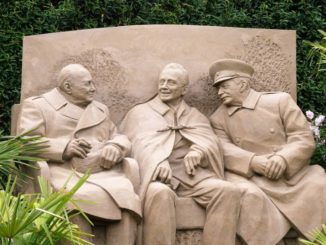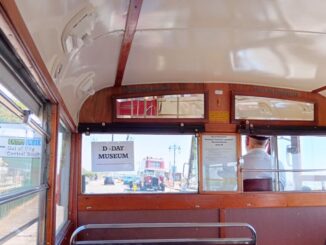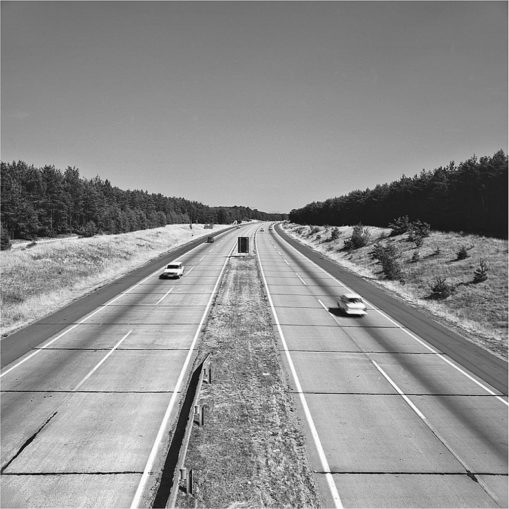
Gerd Danigel , ddr-fotograf.de, CC BY-SA 4.0, via Wikimedia Commons
Back when motoring was fun….
Tom Robinson was singing this song about our road network to us back in the Seventies, when he wasn’t sharing his anthemic “Sing if you’re glad to be gay”. That was before he got married and had children.
There is currently a 10 (ten) mile stretch of the M20 heading from the channel ports where two lanes are blocked off and nobody appears to be doing any work i.e. not only are there no visible workmen, but there is also no machinery / equipment of any kind in sight. Average speed cameras are in place of course, so queues are inevitable for large parts of the day.
Sitting in this wretched traffic after covering a lot of motorway miles in Germany, Holland and France I reflected on how much road building I had seen when driving sur le continent. I also had time to mull over the fact that between Kent and home in the Midlands I would not see one single road improvement scheme in progress.
Our motorway network is obviously poor, but just how bad are we compared to some of our European neighbours?
Time to dig out some statistics…..
And the answer is…for the fifth largest economy in the world, we are miles off the pace. Even Poland has more kilometres of motorway than we do. On any metric, we are woefully behind every other civilised European country.
We knocked out the first half of the M1 in the late 50’s in record time and we had a brief growth spurt in the 60’s and 70’s. Since then we appear to have kept any meaningful extensions to our motorway network to a bare minimum.
If we take the period 2001 to 2021, France added 1,603 km, Germany added 1,397 km and….big fanfare and a huge raspberry…the UK added 319 km.
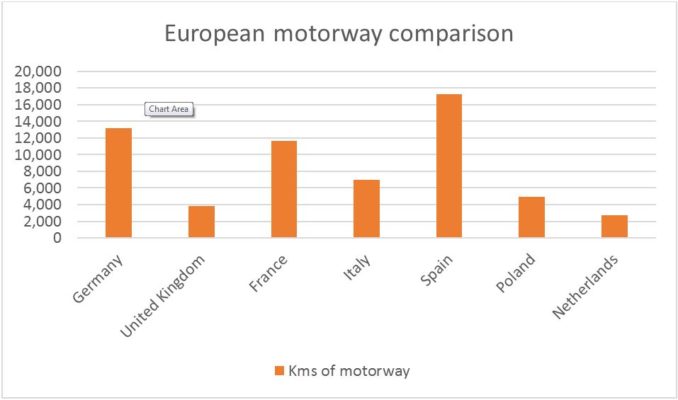
Looking at motorways vs size of population doesn’t improve matters either…and this graph is based on official Eurostats which has us down as 67 million people….
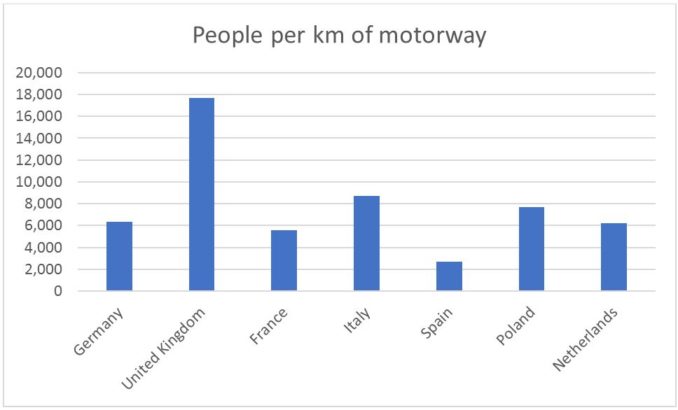
Spain is an outlier at the other end of the spectrum, but I guess, like their neighbours Portugal, they have been rather adept at getting EU funding to expand their road network.
As expected, we can’t even find an excuse in “but we are such a small country and we have no room to build even more motorways”.
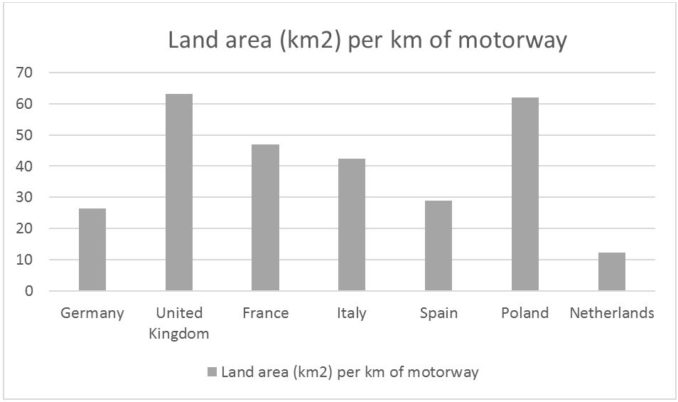
The Netherlands has just 14% of the UK land area, but still manages to squeeze in 72% of our motorways.
No western European country still has single carriageway stretches between major cities. See the A1 between Newcastle to Edinburgh as just one example of the alternative UK approach.
We know Rishi prefers to use a helicopter, but do our useless MPs never drive anywhere?
* * *
A thorough GP article would now move seamlessly into an detailed analysis of why we have failed so badly to grow our motorway infrastructure, the economic costs of this underperformance and how we might get ourselves back on track.
However, I simply can’t be bothered.
We have been let down by politicians of every persuasion over the last six decades and the chance of any meaningful addition to our road network with all the green / climate crisis nonsense now has to be close to zero.
Instead I will leave you with two quotes from the eminently sensible lateral thinker, Rory Sutherland, writing recently in The Spectator.
“One of the few infallible ways to spur economic growth is road-building, since it expands the sphere of scope of buyers and the catchment area of people selling things. Yet for some reason there is a complete lack of political will for promoting road-building. I don’t know why. Anyone starting a ‘Motorists’ party’ in 2023 could easily find themselves the next Nigel Farage.”
And commenting on HS2….
“And are railways all that great? Pinkos seem to love mass transit and hate cars. But the problem with mass transit is that such modes of transport operate on a hub and spoke system, which necessarily concentrates added value at the hubs and nodes. By contrast the car, the taxi and the van, which move independently, are almost certainly far better at creating and dispersing wealth and employment to people over a wide area, rather than enriching city-centre landowners.
We assume that the postwar US had a lot of cars because it was rich. But the reverse is also true: it became rich because it had a lot of cars. If we really wanted to boost the economy, HS2 would be a road.”
© Jacques Hughes 2023

